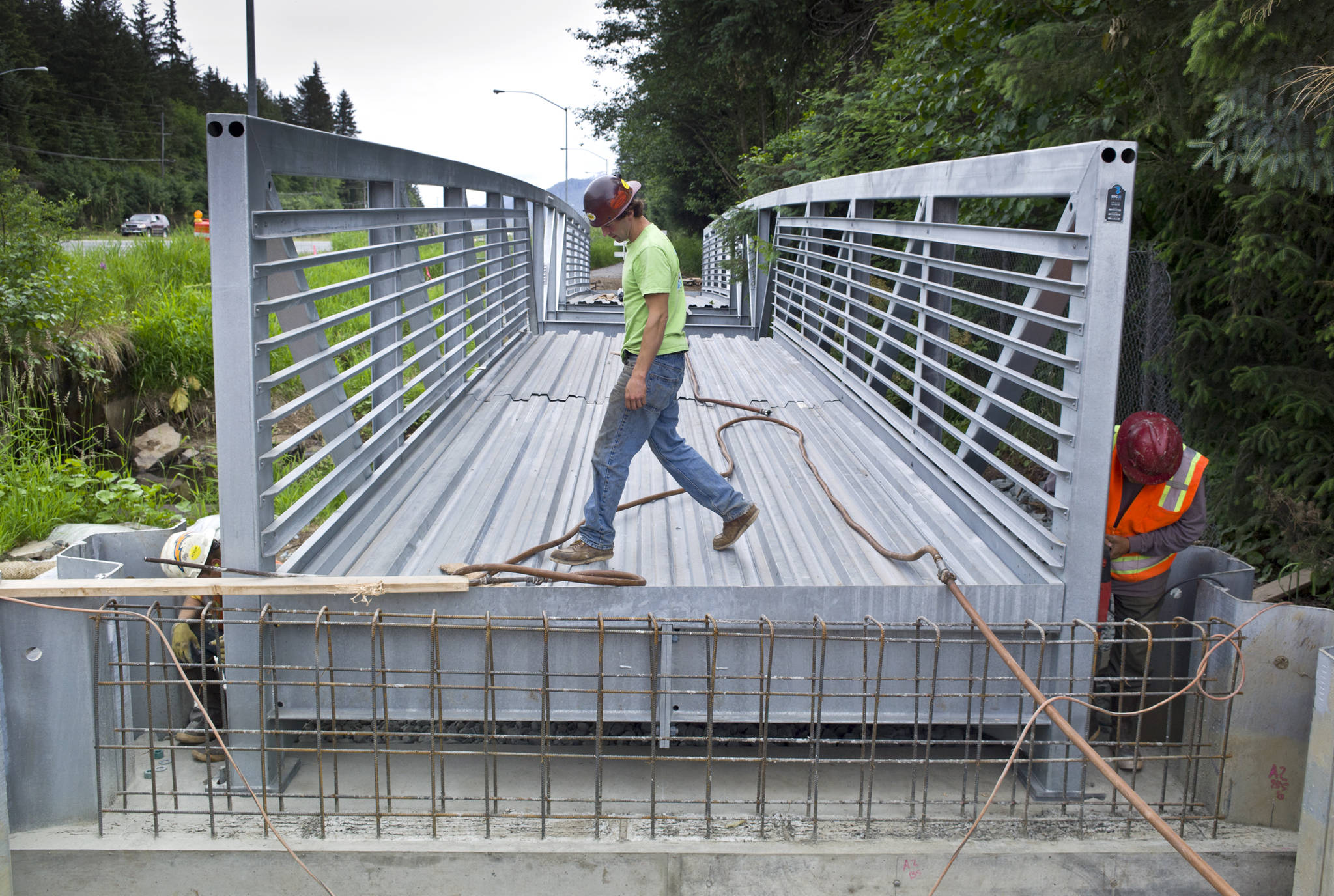The future of Pebble Mine, the Susitna dam and any trans-Alaska natural gas pipeline may be determined by an obscure clause of the Alaska Constitution.
On Tuesday, attorneys representing Stand for Salmon and the State of Alaska delivered oral arguments to Anchorage Superior Court Judge Mark Rindner. For little more than an hour, they explained why (or why not) Rindner should override Lt. Gov. Byron Mallott, who last month ruled that a proposed pro-fisheries ballot measure is unconstitutional.
“The question that I’m grappling with is, is this a (measure) that so limits the legislative body … that in effect it is an appropriation?” Rindner said.
Article XI, Section 7 of the constitution states in part that an “initiative shall not be used to … make or repeal appropriations.”
Stand for Salmon’s eight-page initiative is a sweeping measure to overhaul the rules for permitting construction projects that affect salmon-bearing streams. (By default, all bodies of water would be considered salmon-bearing.)
The measure was proposed in May, redrafted, resubmitted, then rejected by the lieutenant governor.
The question Rindner must decide is whether the initiative is so sweeping that it effectively appropriates Alaska’s waters for fish alone.
Stand for Salmon attorneys contend that the initiative would allow projects to progress as long as those projects later make good the damage they do to salmon waters. The state’s attorneys (the Council of Alaska Producers has attempted to side with the state as well) say the hurdles for projects are so great that few (if any) would be able to leap them.
“There’s no way to build some of these projects without de-watering (fish) habitat,” Assistant Attorney Elizabeth Bakalar told Rindner.
Ballot initiatives related to conflicts between fisheries and mining interests have repeatedly found their way to Alaska’s courts. The issue of Pebble Mine in particular has been a frequent visitor to the courtroom.
In 2014, almost two-thirds of voters approved a ballot measure requiring the Alaska Legislature to approve any large metal mines in the Bristol Bay Fisheries Reserve. Despite the technical language behind that particular measure, it was written (and seen by voters) as a vote against the proposed Pebble Mine.
In 2007, a pair of ballot measures proposed to limit mining runoff statewide. Those measures were challenged as unconstitutional by the Pebble Limited Partnership, among others. The issue was sent to the Supreme Court, and one ultimately appeared on the ballot. The other did not.
“The closest case we’ve got is Pebble, I think,” Rindner said, referring to the 200but there are big differences between that case and this one.
This time around, Stand for Salmon is proposing something bigger and more comprehensive, and Rindner wasted no time grilling the two sides’ attorneys.
Before Stand for Salmon attorney Valerie Brown had said two sentences, Rindner was already peppering her with questions. When Bakalar presented the state’s position, Rindner did the same, not waiting even for Bakalar to put her name on the record.
“Nobody should take my questions as any indication of which way I’m leaning because I’m not really sure which way I’m leaning,” Rindner said.
Even if Rindner overrides the lieutenant governor and approves the Stand for Salmon initiative, the measure faces an extraordinarily long and likely tumultuous road to becoming law.
The loser of the case is expected to appeal the matter to the Alaska Supreme Court. At the same time, barring an injunction, Stand for Salmon is expected to begin gathering signatures to put the initiative on the fall 2018 ballot. Backers must get more than 32,000 signatures before January to make the deadline for next year’s elections.
If the measure survives all those legal challenges, and makes it to the ballot, it still must garner support from a majority of voters. The state’s leading mining, drilling and construction organizations have already voiced their objection and their willingness to oppose it at the ballot box.
Correction: The initial version of this story incorrectly identified the assistant attorney general presenting the state’s case. It was Elizabeth Bakalar, not Katherine Demarest. The story has also been updated to clarify which of the several Pebble Mine-related ballot measures was discussed by the attorneys.
• Contact reporter James Brooks at james.k.brooks@juneauempire.com or call 523-2258.

